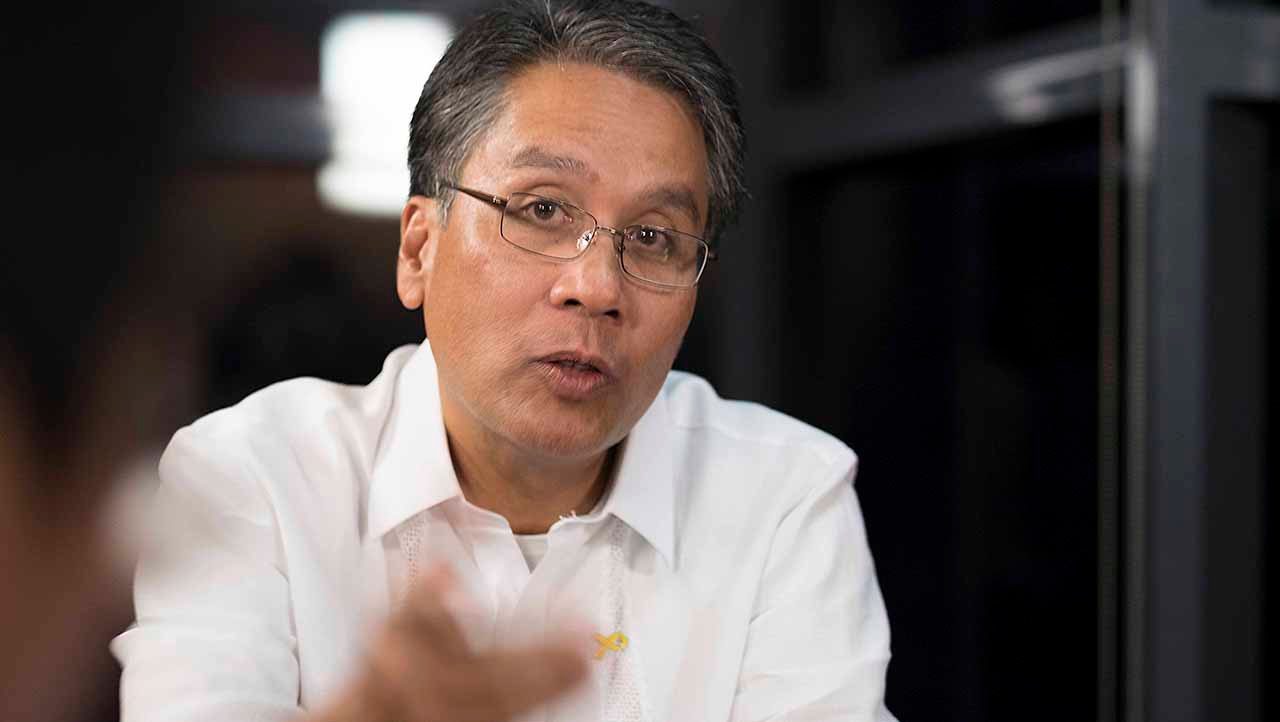SUMMARY
This is AI generated summarization, which may have errors. For context, always refer to the full article.

MANILA, Philippines – In a country where voters are “worldier” and where millions are part of the global diaspora, where does the ruling political party’s standard-bearer stand when it comes to global issues?
Manuel Roxas II enumerated the “biggest threats” to the Philippines as it faces territorial issues with its neighbors, stronger and more frequent typhoons, and the rise of fundamentalism. (The Leader I Want: Mar Roxas’ to-fix list for 2016)
US VS CHINA. Roxas said the “increasing competition” between the world’s two biggest economies – the United States and China – is a “given.”
“It will be fought in the West Philippine Sea (South China Sea),” added Roxas.
China claims most of the sea, including areas the Philippines claims at its own.
President Benigno Aquino II, who endorses Roxas’ candidacy, will likely be most remembered for his strong stance against China. Roxas, a member of Aquino’s Cabinet since 2011 up until mid-2015, shares the same stand as Aquino.
“I think our options are quite limited by our being militarily smaller and weaker than China, I mean we cannot hit them over the head with a club and so really, it’s really to go through the United Nations,” he told Rappler.
A day after Rappler’s interview with Roxas, a United Nations-backed arbitral tribunal at The Hague, in the Netherlands said it had the right to hear Manila’s case against Beijing. It’s the first step in what will likely be a long arbitration over the West Philippine Sea. The tribunal is set to decide on the case by 2016.
The battle between US and China, an emerging super power, will also likely be fought “in other forms” such as the World Trade Organization, and conferences on global warming.
FIGHT FOR RESOURCES. The planet, Roxas noted, has “twice the number of people” with the same finite resources.
“When I was in high school – that’s a long time ago – I remembered our socio economic class there was like 4 billion people on earth, it’s now 7 billion well on it’s way to 8 billion, doble (that’s double), the Earth has not, I mean it is the same amount of hectarage, the same sees and the oceans and the same resources,” said Roxas.
Resources, minerals, food, and clean water will be a “major issue” in the coming years. “Hopefully doesn’t evolve into a fight [but] competition will become quite intense,” he added.
GLOBAL WARMING. Echoing the opinions of climate change experts, Roxas noted that the country bears the brunt of global warming and climate change even if “we contribute very, very little to that problem.”
In 2013, Eastern Visayas and nearby regions witnessed first-hand the devastation caused by climate change when Typhoon Yolanda (Haiyan) pummelled through central Philippines, leaving thousands dead and even more missing. Roxas was among the Cabinet officials who led relief efforts post-Yolanda.
Yolanda – and the government’s alleged ineptitude in responding to the crisis – are among the sticky issues Roxas will have to face in his candidacy.
ISIS AND FUNDAMENTALISM. “Increased fundamentalism in the Muslim world,” Roxas said, is another thing the country must be “very careful about.”
In the recent years, the world has seen the rise of the Islamic State of Syria and Iraq (ISIS), a violent extremist jihadist armed group. The ISIS ideology is one that is spreading fast on social media, writes Rappler Executive Editor Maria Ressa.
It was through social media that the jihadist group attempted to infiltrate the Philippines.
“For the Philippines, the potential failure of the Bangsamoro Law to pass Congress could trigger negative ripples that may create another safe haven for terrorists, much like what happened with Jemaah Islamiyah in the 1990s,” wrote Ressa.
The proposed Bangsamoro basic law is among the legislations the Aquino government wants passed by 2016. Roxas echoed Aquino’s stand, saying passing the controversial law would avert the chance of extremists and fundamentalists infiltrating the country. – Rappler.com
Add a comment
How does this make you feel?
There are no comments yet. Add your comment to start the conversation.